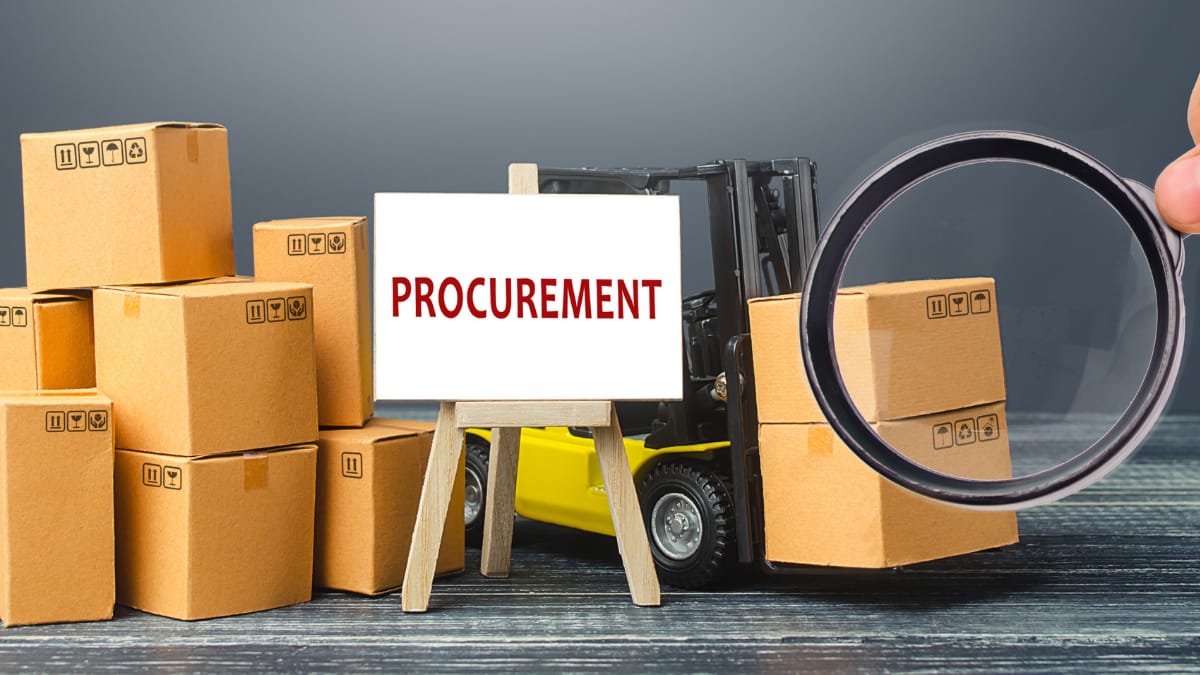
PUBLIC NOTICE – GOVERNMENT PROCUREMENT PROCEDURES
The procedures for engaging in a legal transaction to provide goods and services to the Government of Antigua and Barbuda have been revised and take effect March 1, 2024.
This is part of the Government’s effort to strengthen expenditure management and controls, ensure it receives value for money, and improve relations with suppliers and contractors.
All merchants, vendors, service providers or contractors doing business with the Government must be duly registered and compliant with the Inland Revenue Department, Social Security, Medical Benefits and Board of Education as required by law.
Once a Ministry or Department approaches a merchant, vendor, or service provider to acquire a good or service the following steps must be followed:
- The merchant, vendor or service provider submits an invoice to the relevant ministry/department detailing the exact quantities and itemised costs of the requested goods or services.
- The merchant, vendor or service provider delivers the good or service to the ministry or department upon receipt of payment issued by the Treasury Department.
- At no point should a merchant, vendor or service provider supply any good or service to any ministry or department on credit – that is, before being issued payment by the Treasury – without the expressed approval of the Office of the Financial Secretary.
For contractors doing business with the Government, the relevant Permanent Secretary and the Contractor must execute a contract having followed the requisite procurement procedures. This contract must then be signed by the Financial Secretary BEFORE a contractor can commence work on any project. If the contract is not signed by the Financial Secretary it is not valid and payment cannot be made from the Treasury Department.
Any good or service supplied, or work undertaken by a merchant, vendor, service provider or contractor in breach of the Government’s procurement procedures may NOT be considered a legitimate liability of the Government.
All merchants, vendors, service providers, and contractors should be guided accordingly.
Advertise with the mоѕt vіѕіtеd nеwѕ ѕіtе іn Antigua!
We offer fully customizable and flexible digital marketing packages.
Contact us at [email protected]

















These so called new procedures are nothing but an eye washing issues late Friday evening slow news cycles.
The rules outlined are an invitation for malfeasance, corruption and abuse.
Government procurement policies and practices should allow for all vendors to be on a level playing field.
At a minimum each vendor/service provider registered and compliant with the Inland Revenue Department, Social Security, Medical Benefits and Board of Education
No Ministry or Department should approaching a merchant, vendor, or service provider to acquire a good or service on an individual basis unless that vendor has a proprietary product or the product and services has to be procured for an emergency situation.
All Governnent procurement
for services to the Government should be procured by competitive bids/quotations where each vendor/ contractor receives an invitation (all at the same time in writing) to pickup bid invitations and to participate in the bidding process.
Each contractor/ vendor has the same deadline to submit their price.
Each bid/quote is submitted sealed and opened and recorded at the same time and read out by Financial Secretary in the presence of the Permanent Secretary who witnesses and records the bids.
The lowest qualified bidder then receives an award letter allowing them to proceed with providing the products or services.
Hmmmm I guess there will be a government shutdown soon cause most service providers are owed substantial sums of money currently. I see no mention of plans to liquidate the current debt owed to the merchants, vendors or service providers, so I wonder how should they be compliant with their legal obligations to the various government entities???? #thepoormancrying
CountryMan Abroad – Well said for the mots part. Quite simply, who will reconcile the goods paid for in advance to the goods received and ensure compliance? In addition, the playing field will not be level as the larger importers have a lower cost of importing the exact same goods from the same manufacturers/vendors and origin – economies of scale.
The only and/or most important criterium for selection cannot simply be better pricing, notwithstanding considering what I said above, there must be other factors. Firstly, the specifications of the products must be set – quality, packaging, source etc. The price will then be balanced against whether the specifications are met or exceeded.
Well Cooyah! – Me ah wonder too.
@ Me Fraid,
The reconciliation process is understood, for the process has to include making sure GOAB get what it’s paying for.
You have raised an important issue with regards to the small vendors not being able to compete against the large importers.
One of the hallmarks of successful democratic countries, is the ability to provide a stable business environment which encourages and fosters entrepreneurship.
First Government has to aware of small business being at a disadvantage; and develop policies to even the playing field, and to grow small businesses
The most common procurement policy, is to “set aside” certain contract for small businesses only.
Another policy is joint ventures that are legitimate and brought together by the Government. Assuming the Government shows no preference; which is the purpose of competitive bidding.
The Government Procurement Procedures being outlined in the article are like first steps; but they are a step in the right direction.
Hopefully, GOAB recognize what’s being announced is partial; and they are moving to develop a more robust set of procurement solutions and systems soon.
@ Me Fraid
Reconciliation is an essential and has to be part of the procurement and management process. You are correct.
In addition economic policies has to be implemented to enable small and startup businesses to compete.
GOAB Policy makers are only familiar with economic growth derived from Foreign Direct Investments.
The idea of organic growth through the formation and expansion of small businesses is not an idea of National economic policy.
So they go with what has been the go-to model of getting the lowest possible price per unit which stymie economy growth.
You are correct the playing field is not level.
The large importers with their exclusive rights are monopolies.
Even patents expire, enabling others to produce the product and bringing down cost
Policy makers consider import rights as exclusive rights not to be touched.
Not only can GOAB tinker with the exclusivity of the large importers; it can create Small businesses set aside contract policies in government purchasing.
Such a policy will open the door to creating a more level playing field, where small businesses can compete against each other for GOAB business opportunities.
Most of our businesses policy and processes are based on the Colonial Era business practices.
Government Ministers as policy makers are not adept in business processes and practices; and how these archaic practices affect national growth.
This was done by UPP, that same Harold Lovell, and they opposed it. Now it’s a “great” move. Anyway, it will not work because under ABLP because , it is intended to affect only some.
I’m all for good procurement policies and procedures, however there must also be a level playing field and fairness. The government is incapable of contracting work and paying for it on time, or let’s say unwilling unless you own a large company or are of a certain ethnic persuasion. They deliberately keep the smaller man down while foreign entities receive huge concessions. You can’t charge ABST for government jobs and they won’t pay a deposit on jobs but you don’t receive payment until sometimes 6 months and in some cases even years later because “government doesn’t have money”. By the time you get paid the money gets absorbed into an APUA bill that you owe on because despite your best efforts you can’t get paid on time. The treasury will pay certain people week in week out and delay others who aren’t paying under the table or who aren’t friends with politicians for years sometimes telling them to come back tomorrow over and over.
Comments are closed.